The Mühlbock-Nomura Award
Previous awardees:
- 2023 Dr. Michael Festing from the UK was recognized for his achievements in promoting the importance of quality standards in the genetics and microbiology of laboratory animals. He emphasized that "the completely randomized" and "randomized block" designs are the only experimental designs suitable for general use in pre-clinical research.
- 2019 Prof. Lela K. Riley, PhD & William R. Shek, DVM, Ph.D.
- 2015 Mamoru Ito, (Central Institute for Experimental Animals, Kawaskai, Japan)
- 2011- Anita Aperia, (Karolinska Institute, Sweden). A top scientist in kidney research.
- 2007 – Dr Edouardo Moacyr Krieger. An influential Brazilian physician, physiologist and scientific leader.
- 2003- Dr Jean-Louis Guénet (Head of the Mammalian Genetics Unit at Institut Pasteur, Paris, France).
- 1999- Peter C. Doherty. Nobel Prize in Physiology in 1996 for discoveries concerning the specificity of the cell mediated immune defence.
- 1990- Bennet J. Cohen. Key in the founding of some of the most important laboratory animal science organizations including AAALAC International (he was the first Chairman of AAALAC’s Council on Accreditations), AALAS, and ACLAM
- 1988- Tatsuji Nomura. One of the first promoters of health status and genetic definition of laboratory animals.
The Bennet J Cohen Award
The Bennet Cohen Award was created to recognize an individual who has achieved prominence in promoting and advancing the “three Rs” of reduction, refinement and replacement in the use of laboratory animals in research, teaching and testing, first described in 1959 by Russell and Burch.
Since 1995, the award has been presented at each General Assembly to the following:
- 2023 Dr. Neal Ward (Massey University , New Zealand), for his promotion of the 3 Rs. “The Three Rs - What Do We Do?”
- 2019: Dr. David Mellor
- 2015: Dr. Jeffrey Mogil, (McGill University, Montreal, Canada).
- 2011: John Miller, (Executive Director, AAALAC, International).
- 2007: Prof. Paul Flecknell, (Professor/Director Comparative Biology Centre, Medical School, University of Newcastle).
- 2003: Dr Harry Rowsell (Executive Director of the Canadian Council on Animal Care, Canada, 1968-1992).
- 1999: Prof Bert van Zutphen (Director of the fisrt Laboratory Animal Science Department in Europe, in Utrecht University).
The Coates-Demers Award
The Coates-Demers Award (previously called the Outstanding Service Award) recognizes an individual who has made an outstanding commitment to ICLAS and its programs. In 2005, the award was renamed in recognition of Dr. Marie Coates's pioneering work in gnotobiology, and laboratory animal health and quality. In 2022, this award was re-named the Coates-Demers Award in honour of Dr. Gilles Demers to recognize his extensive contributions to ICLAS through his years of service on the Governing Board and his tireless work to harmonize and elevate the standards of laboratory animal care around the world, particularly in developing nations. The award is not routinely presented at ICLAS General Assemblies. Since 2003, there have been two awardees.
- 2023 Dr. Patri Vergara (Universidad Autónoma de Barcelona, Spain), In recognition of her contributions to ICLAS in "Education & Training and Animal Quality in Laboratory Animal Science."
- 2005 Dr. Tatsuji Nomura (Japan)
- 2003- Steven P. Pakes (USA) (1991-1995 ICLAS Governing Board Member; 1995-1999 Secretary General of ICLAS; 1999-2003 President of ICLAS)
Awardees
2023
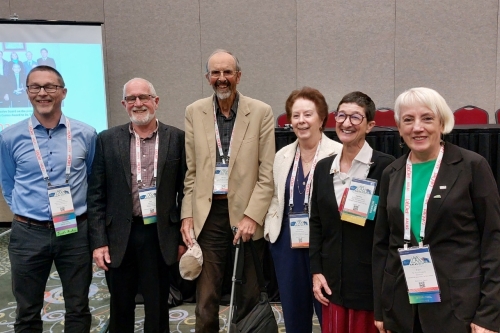
From left to right, Dr. Jussi Helppi (ICLAS President), Dr. Neil Ward (2023 The Bennet J Cohen Award), Prof. Michael Festing (2023 The Mühlbock-Nomura Award), Dr. Ekaterina Rivera (former ICLAS General Secretary), Dr. Cynthia Pekow (former ICLAS President) and Dr. Patri Vergara, 2023 Marie Coates Award and former ICLAS President).
2023
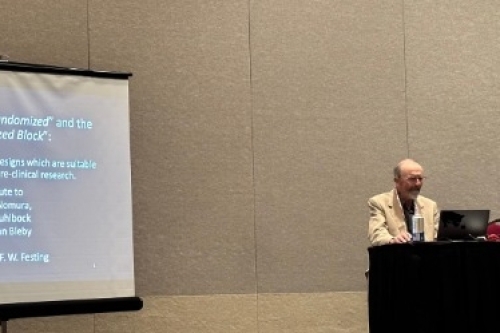
Dr. Michael Festing
Dr. Michael Festing
The Mühlbock-Nomura Award Recognized for his pioneering work in laboratory animal science. Dr. Festing has greatly advanced quality standards in genetics and experimental design, notably advocating for the 'completely randomized' and 'randomized block' designs as essential in pre-clinical research. His contributions have enabled scientists worldwide to enhance research rigor and reduce animal use.
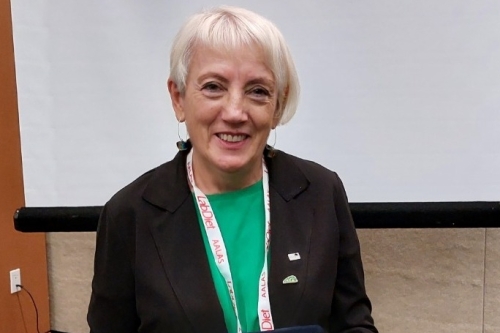
Dr. Patri Vergara
The Coates-Demers Award.
Universidad Autónoma de Barcelona, Spain - Recognized for her contributions to ICLAS in Education & Training and Animal Quality in Laboratory Animal Science.

Dr. Neal Ward
The Bennet Cohen Award
2015
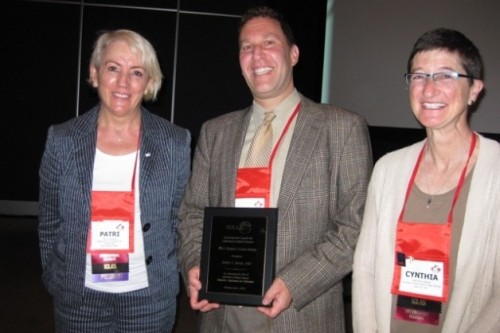
Dr. Jeffrey Mogil
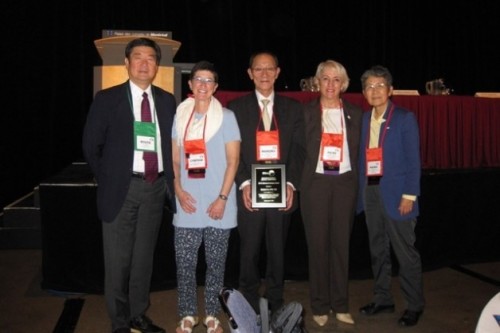
Dr. Mamoru Ito
2015

Dr. Jeffrey Mogil

Dr. Mamoru Ito
2015

Dr. Jeffrey Mogil

Dr. Mamoru Ito
2007

Prof. Paul Flecknell
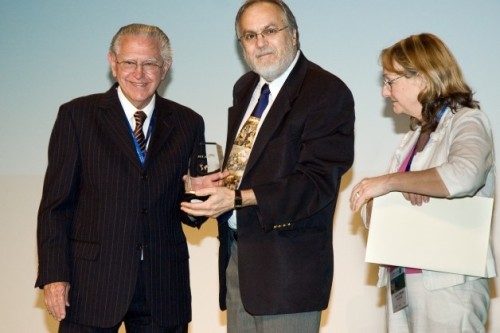
Dr Edouardo Moacyr Krieger
2005
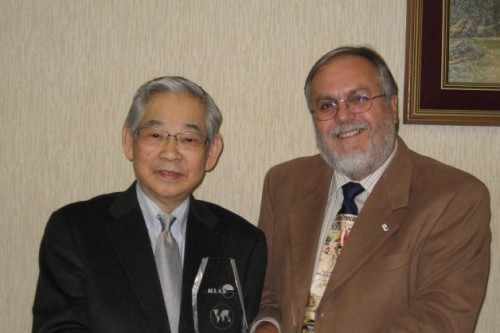
Dr. Tatsuji Nomura (Japan)
Marie Coates Award
Dr. Nomura and Dr. Demers (Tokyo, Japan, Feb. 25, 2005.)

2003
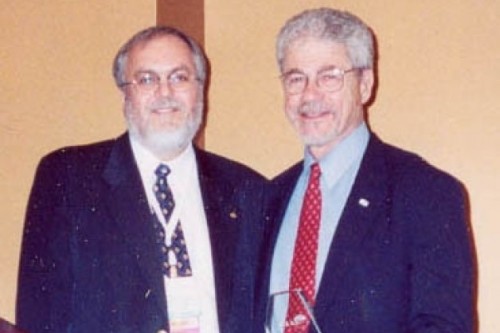
Dr Steven P. Pakes (USA)
Outstanding Service Award
1991-1995 ICLAS Governing Board Member
1995-1999 Secretary General of ICLAS
1999-2003 President of ICLAS
For 12 years of Outstanding Commitment to the
International Council for Laboratory Animal Science and its Programs
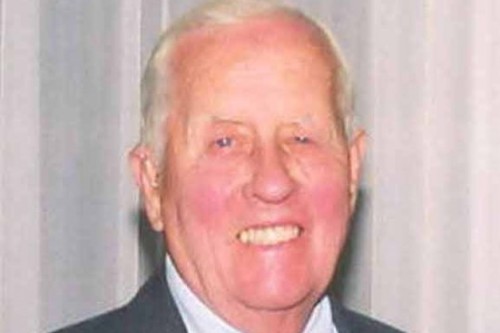
Dr Harry Rowsell
Executive Director of the Canadian Council on Animal Care, Canada, 1968-1992
The Bennet Cohen Award was created to recognize an individual that have acheived prominence in promoting and advancing the “three Rs” of reduction, refinement and replacement in the use of laboratory animals in research, teaching and testing, first described in 1959 by Russell and Burch.
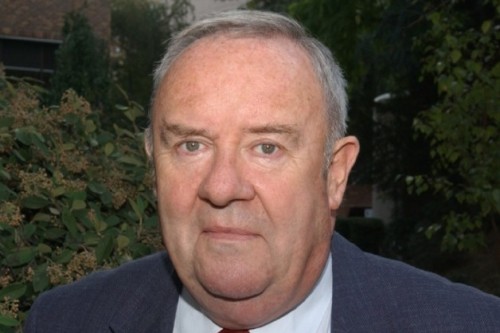
Dr Jean-Louis Guénet
The Mühlbock Award is the oldest and most prestigious recognition that ICLAS confers. It is named after a renowned scientist and one of the early fathers of ICLAS, Professor O.F.E. Mühlbock of the Netherlands. The Award has been previously conferred upon many distinguished scientists, including a Nobel laureate, all of whom supported the value of using high quality, genetically and microbiologically-defined laboratory animals in research.
